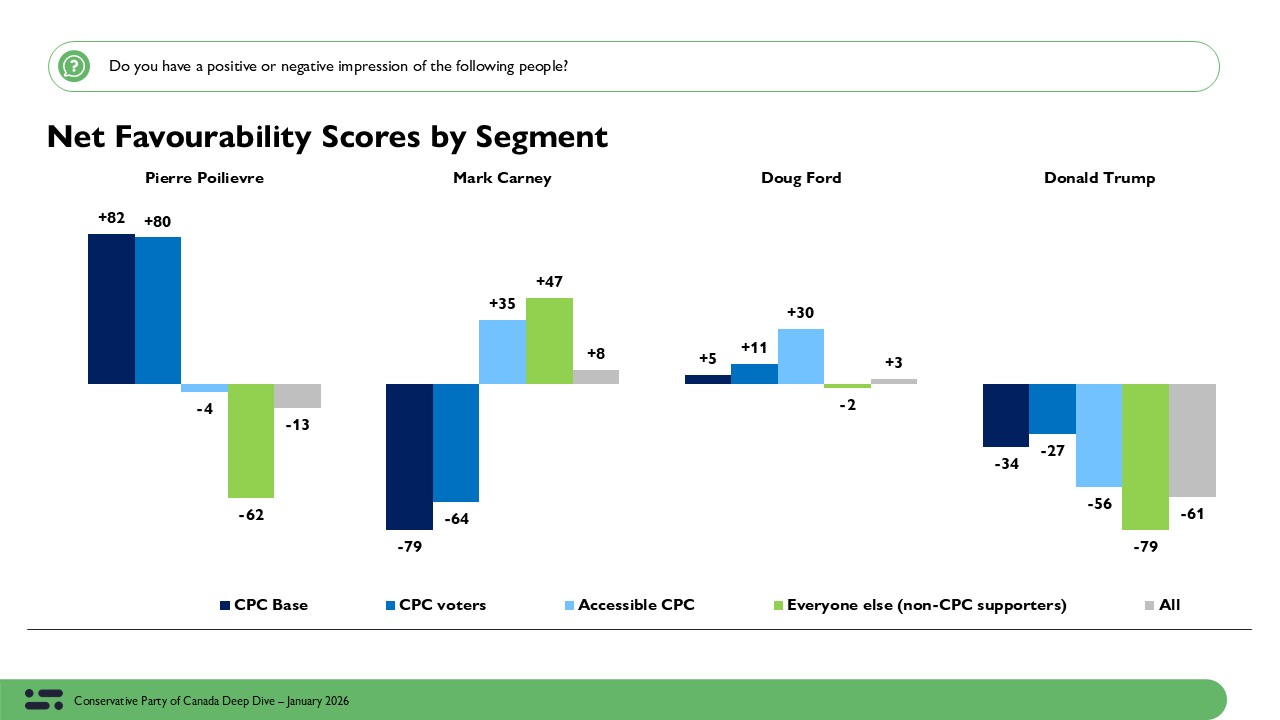Ghost in the Machine: How Canadians Are Feeling Their Way Through the Age of AI
November 20, 2025
On Wednesday evening at Carleton University, I joined students, practitioners, and members of the public for an event called Ghost in the Machine. It was an opportunity to share what Canadians are telling us about artificial intelligence at a moment when technology is accelerating far faster than our ability to understand its consequences. As with so many issues in 2025, AI sits squarely in the emotional space Canadians now occupy. It is the space between scarcity and precarity. It is where people are no longer asking whether there will be enough but whether we will be okay.
To situate AI in this moment, we have to start with the mindset Canadians are bringing into the conversation.
The backdrop is familiar. A world of shocks and disruptions, displayed starkly in the images on the early slides of my presentation: protests, pandemics, war, political upheaval, natural disasters, and economic uncertainty. These are not abstract stimuli. They are lived experiences that have conditioned a population to tighten its grip on whatever stability remains.

From this, a precarity mindset has taken hold. Canadians are preoccupied with questions of safety, belonging, and basic needs.
In our polling, two thirds worry about affording basics in the next six months, and seven in ten say uncertainty is causing them to delay major life decisions. The slide showing Maslow’s hierarchy reveals just how foundational this is: most Canadians see themselves stuck in the lower layers of the pyramid, focused on safety needs and even physiological needs instead of aspiration and growth.
When you start from this emotional and material place, every new technology is filtered through unsteady ground.
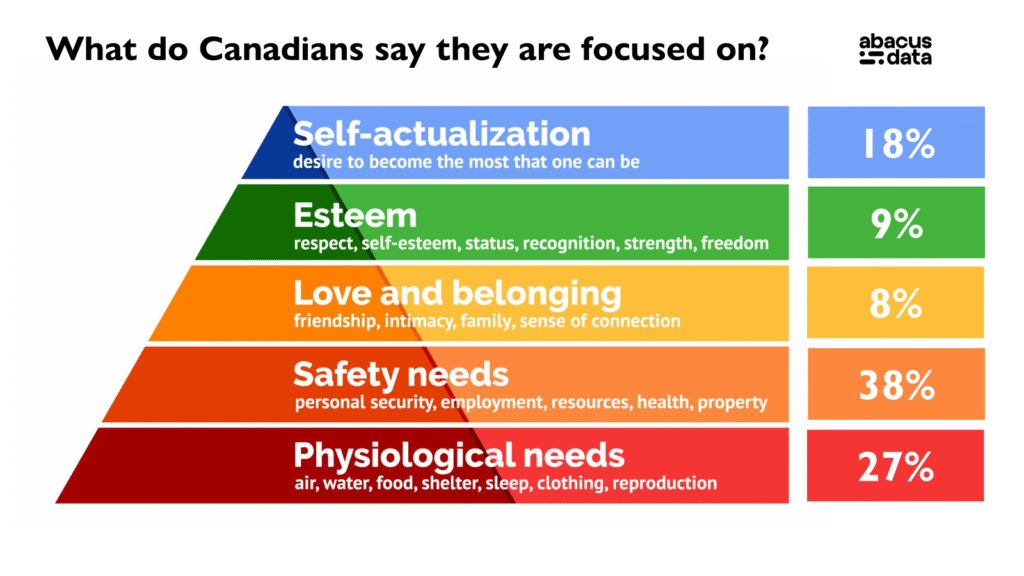
It is in this context that Canadians are encountering AI. For all the hype about breakthroughs and disruption, the public’s relationship with AI is far more ambivalent and human than the headlines suggest.
On one hand, nearly half of Canadians say they are using AI at least occasionally, and among young adults that number shoots up to 72 percent (Abacus Data poll from July 2025).
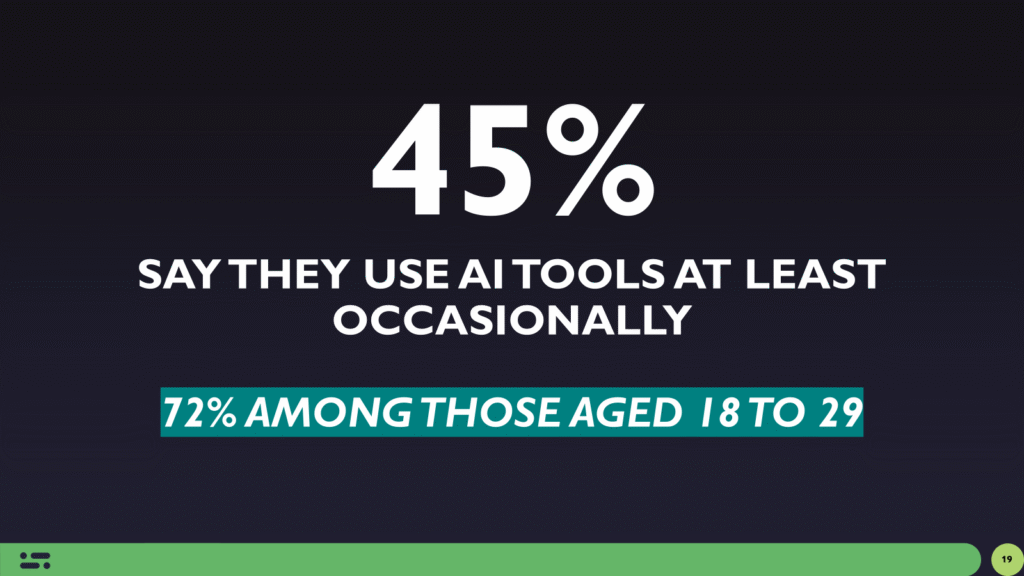
People are experimenting, exploring, and integrating these tools into work and daily life. There is genuine curiosity and a recognition of the potential upside.
Those upsides are real. When we ask Canadians to describe the benefits they see, the top answers reveal a practical optimism. Increased efficiency and productivity rank first. Reduced human error comes next. People mention better access to information and education, greater convenience, improvements in healthcare, and new opportunities for innovation and creativity. These are not fantastical visions of robot-driven utopias. They are grounded, everyday ways AI can make life a little easier, a little smoother, a little more manageable.
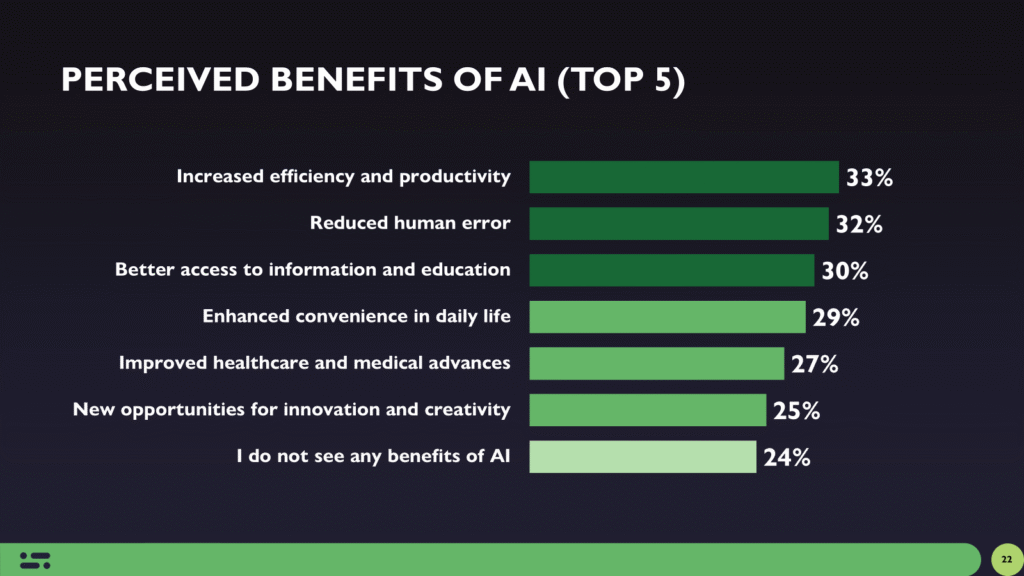
But the downsides cast a long shadow, and they loom larger than the benefits for most. A majority say they distrust AI to be used safely and responsibly in society. Nearly half say they have little or no familiarity with it, which makes that distrust unsurprising. And when we ask about risks, Canadians draw from a deep well of apprehension: malicious use, misinformation, loss of privacy, safety risks, job losses, loss of human control, and even fears of social isolation as human connection erodes.
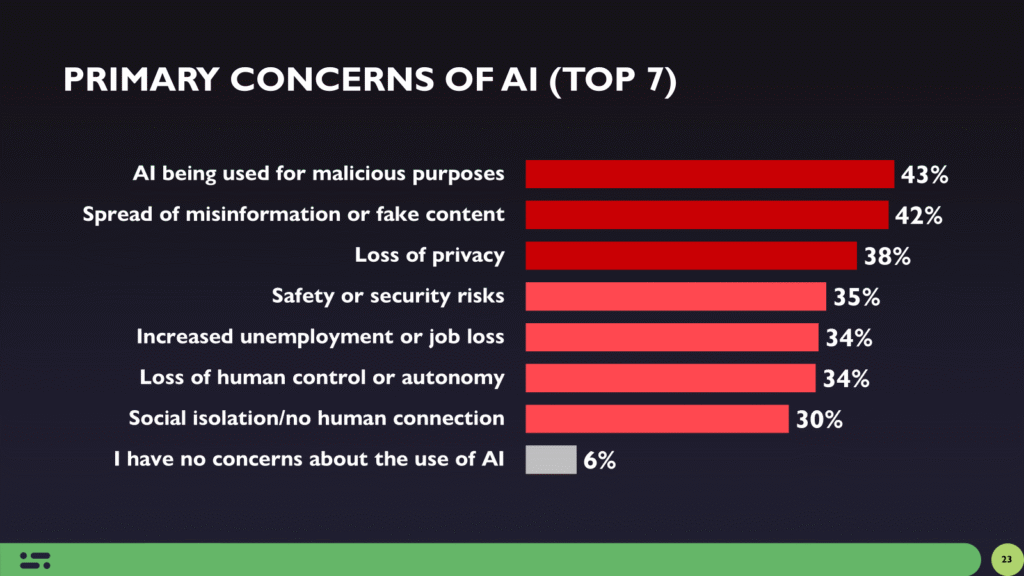
These concerns are not theoretical. They reflect the emotional climate Canadians are living in.
AI does not enter a neutral environment. It enters a Canada already struggling with cost of living pressures, geopolitical fears, and a sense that the future is becoming less predictable. When six in ten Canadians say AI will eliminate more jobs than it creates, they are connecting technological change directly to their own vulnerability. And when only 17 percent believe they personally will benefit from unleashing AI, the message is clear: most people expect gains to flow elsewhere.
This is how AI fuels the precarity mindset.
It becomes another force that feels out of one’s control. Another invisible system shaping opportunity, stability, and identity from the outside. Another thing that might take something away rather than give something back.
When Canadians tell us they need reassurance that things will be okay, that we can get through this moment, they are not speaking about AI directly. They are speaking about everything AI represents in a time of disruption and dislocation.
The temptation in discussions about AI is to get lost in technical debates. What models can do. How they are trained. Which industries will be transformed.
But what Canadians are really asking is much more elemental. How will this change my life. How will this affect my relationships and my work. Will I still have a place in an economy where machines can think. What does human connection look like in a world mediated by algorithms. Do we lose something essential in the exchange.
These are not questions engineers can answer alone. They live at the intersection of psychology, society, and democracy. They require a politics of reassurance, a public conversation rooted in trust, and an economic strategy that ensures people do not feel left behind as change accelerates.
A great risk of AI is not just runaway intelligence or machine domination. It is the slow erosion of the social fabric. The ways big shifts in work, communication, and human interaction can deepen the sense of precarity already shaping Canadian life. It is a future where people feel increasingly disconnected from one another, displaced from meaningful roles, and unsure whether they will be okay.
Our challenge is to prevent that future from becoming real. To ensure AI becomes a tool that supports human flourishing rather than undermining it. To build systems that extend agency rather than constrict it. And to provide the reassurance Canadians are clearly asking for.
Because if the ghost in the machine is fear, then the antidote is trust. And building trust is a choice we still have the power to make.
David Coletto is founder and CEO of Abacus Data. Subscribe to his personal substack and tune in every week on his politics podcast over at the Hub Canada.


